Football needs idealists like Ange Postecoglou. His Tottenham side are the most captivating in the Premier League era since Newcastle under Kevin Keegan, writes IAN HERBERT
It is never a good sign when a football manager displays an icy attitude towards his own team’s supporters.
Roy Hodgson’s passive-aggressive reference to ‘the famous Anfield support’, which he did not experience during his unhappy time as Liverpool manager, was ominous.
Ange Postecoglou also seemed out of sorts when asked about Spurs scoring 13 goals in three consecutive home games.
“If people can’t see the obvious, I’m not going to point it out,” he said after the 6-3 home defeat to Liverpool on Sunday. “If people want me to change my approach, that won’t change.”
Postecoglou was a very sensitive figure and was portrayed on Sunday as a middle-aged Australian man who does not take the idea of winning competitions seriously. Yet there is something joyful about the attacking credo he adheres to – his ‘religion’ as he has called it – at a time when football is narrowing into a data-driven homogeneity.
Premier League football is now a world of gray pragmatism, with everyone hanging on for dear life. On Sunday we witnessed an individual who stuck to a philosophy and an aesthetic, regardless of the gathering storm.
Ange Postecoglou has refused to deviate from his patented brand of all-action football at Spurs
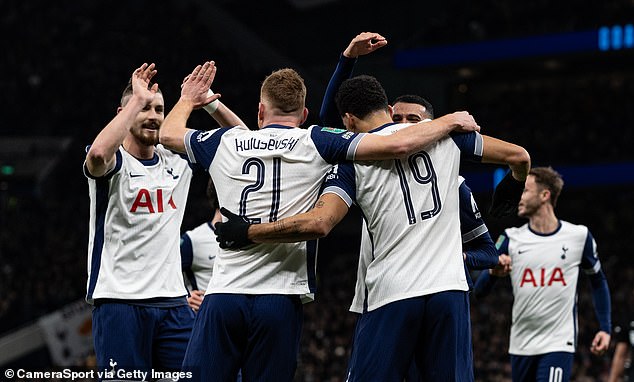
His dedication to attacking football has made Tottenham must-see TV throughout his tenure
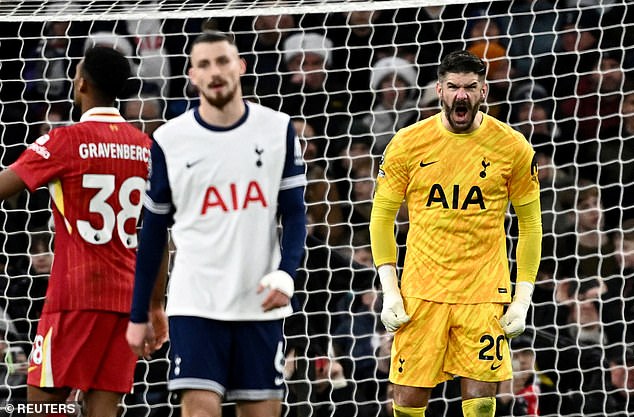
But their defensive fragility will continue to cost them against the Premier League’s best teams
How football needs that. Graeme Souness wrote in these pages two weeks ago about the hard work that Premier League football has sometimes become: ‘playing too much in your own half and going back and forth too much’ and often bereft of ‘unpredictability’.
A run of results that reads: 3-4, 1-1, 5-0, 4-3, 3-6 is wilder than any Spurs fan wants, but Postecoglou has imbued the spirit, after the abrasive, soulless football under Antonio Conte and Jose Mourinho – two grimly pragmatic men.
There are statistical signs that the Australian, whose side has been ravaged by injuries to eight key players, is heading in the right direction. Spurs have had more shots and more expected goals per game this season than last season and scored more goals. They have created more big chances.
They have lost the ball less in their defensive third, conceded fewer shots and conceded fewer goals. By almost every useful measure, they are better than they were 12 months ago.
The data also points to another mode of attack. The team’s number of fast breaks – and the goals scored from those breaks – have skyrocketed, suggesting they have become much more reliant on counter-attacks. The number of sequences in which they pass the ball 10 times or more has clearly decreased. Their ‘average possession’ and ‘build-up breaks’ have also decreased, reflecting the shift towards counter-attacking.
The problem – and it is one that frustrates Souness – is the holes Tottenham leave all over the pitch. That may not have been a problem at Celtic for Postecoglou, but now his tactics are being called out and weaknesses are being pointed out. This marauding Spurs team is extremely reliant on the few players who can provide the defensive blanket when they lose the ball. Above all, center back Micky van de Ven, whose hamstring problems were worrying and forced Postecoglou to field Archie Gray, an 18-year-old, from his natural position there against Liverpool.
Pape Matar Sarr, the midfield anchor, has a good motor but tends to be rash.
Dejan Kulusevski has been a wildcard – a better buy than many expected – but rival clubs could try to poach him if Spurs offer no prospect of trophies. Son Heung-min has now lost his way and is threatening contract uncertainty.
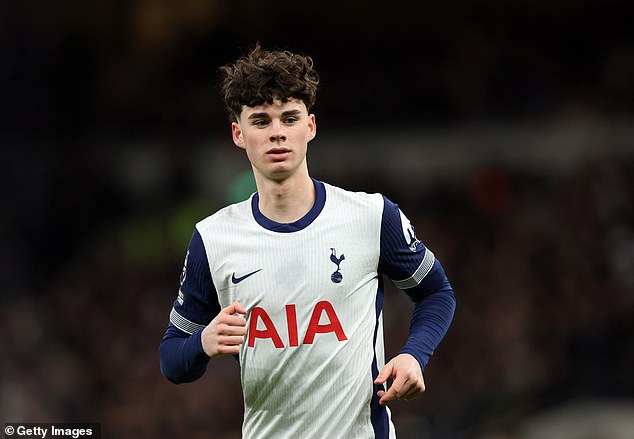
Injuries to several key players have forced Postecoglou to rely on makeshift substitutions, especially in his backline
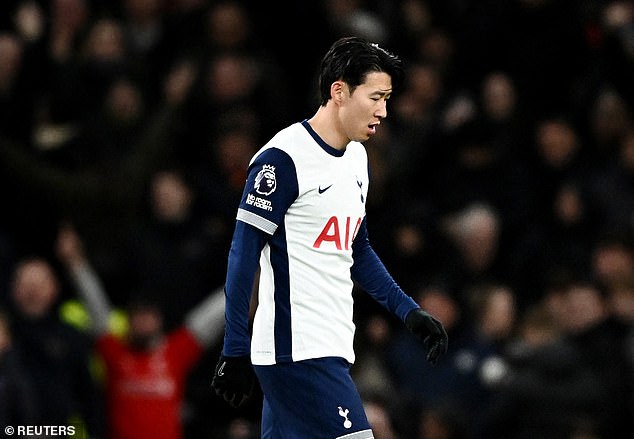
Meanwhile, captain Son Heung-min has been far from his talismanic best in recent weeks
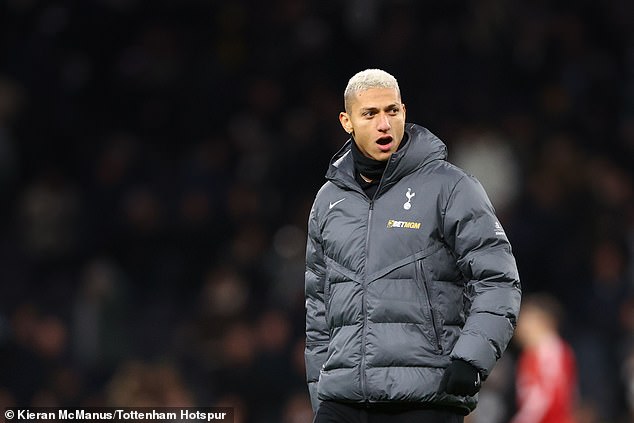
By selling Richarlison, Postecoglou could look for suitable replacements in problem areas

By selling Richarlison, Postecoglou could bring in the players Spurs need: a versatile attacker, a midfielder with a sharper mind than the current staff and a defender who could provide cover.
There are opportunities. Spurs have been offered the outstanding former Everton full-back Ben Godfrey from Atalanta. But Richarlison, although frustrated by a lack of playing time, does not want to leave.
This is the most fascinating test of a footballing ideal since Kevin Keegan took charge of Newcastle United 30 years ago, with a squad that included Alan Shearer, Les Ferdinand, Peter Beardsley, Keith Gillespie, David Ginola and Tino Asprilla – sometimes fielding all five together .
“That was his way of doing things and he had no intention of changing that,” Shearer said recently. “It cost him in the end because we were so far ahead and just kept going and still trying to score goals. And there are shades of that in this Tottenham team.”
This Spurs team looked more vulnerable than Keegan’s Newcastle and even Keegan showed more flexibility than Postecoglou.
Sunday’s Spurs side were as attacking-minded as ever, despite the presence of rookie Gray at the back and 24-year-old Djed Spence as a makeshift left-back.
Even Kulusevski suggested in the aftermath of the defeat that the football ideal must be adaptable to difficult circumstances.
When it was put to him that control during matches was something Spurs should strive for, he said: ‘If you want to get a result, maybe yes. You have to think about how we are doing physically. “Who’s playing? How many games have we played in the last week? Who are we playing against?
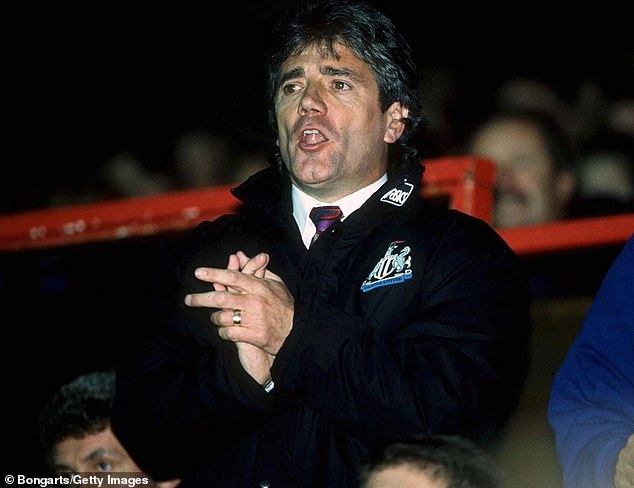
Postecoglou’s football is reminiscent of that of Newcastle during Kevin Keegan’s first spell as manager
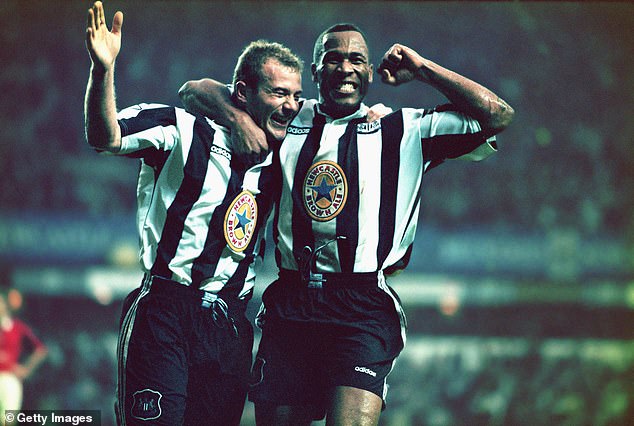
King Kev was loved by the fans for his playing style, but despite a wealth of attacking talents he failed to bring the league title to the North East
Ferdinand, who left Keegan’s Newcastle for Spurs in 1997, said in a studio chat with an invited Spurs audience last week that he felt a compromise from Postecoglou was needed to some extent. “That could be his downfall,” Ferdinand said.
He cited last season’s 4-1 defeat to Chelsea, when the team continued to attack after being reduced to nine men. “I remember him saying that day that he wasn’t going to change the way he played. The fans were positive, but wouldn’t react the same way today.’
Whatever happens, we will witness the same philosophy that Postecoglou set out in an interview on these pages a year ago, not long after the defeat to Chelsea.
“I don’t know any other way,” he said. ‘In the broad church of football philosophies I have remained very strict to one religion. I went into a library of football books and got stuck in a section dealing with attacking football. It’s the only space I feel comfortable in.’
We will remember him long after football’s boring pragmatists are gone.
